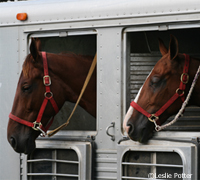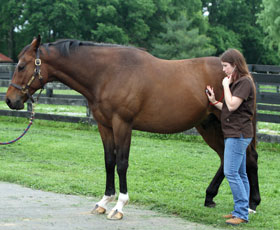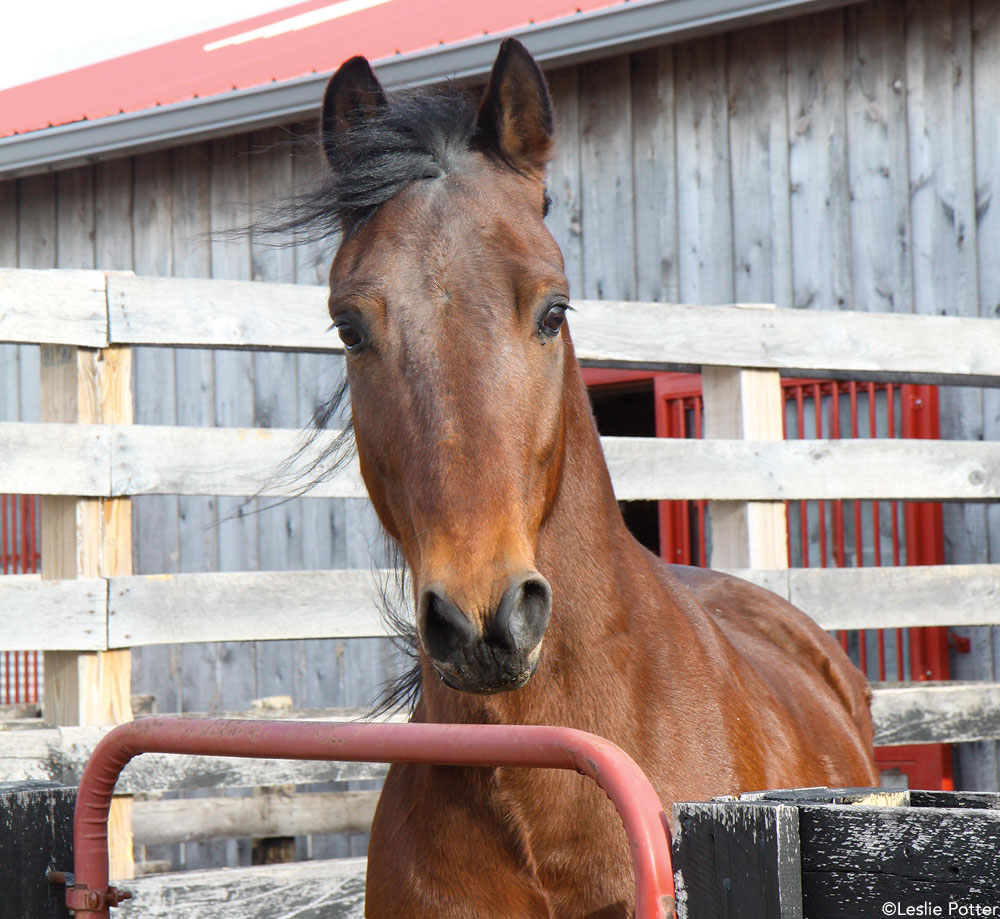 |
| Stress from travel, competition or a lack of turnout can upset the balance of beneficial bacteria in a horse’s intestinal tract, creating a need for probiotics. Photo: Leslie Potter |
There’s been a lot of buzz lately about prebiotic and probiotic supplements. Just what are they, and should you be feeding them?
Under normal conditions, beneficial bacteria (think of them as “good bugs”) live in the horse’s intestinal tract. They help break down fibrous material and produce fatty acids that provide energy. If nothing interferes with these beneficial bacteria, they do their job and digestion proceeds normally.
Unfortunately, many things in the life of a typical domestic horse can upset the status quo in the intestinal tract, including an abrupt change in feed, stress from training and travel, or a course of antibiotics. When that happens, the good bacteria suddenly die off, releasing endotoxins and other toxic substances into the bloodstream. At the same time, opportunistic bacteria–which are always present, but usually in small numbers–reproduce and increase. Among the byproducts they produce is lactic acid, which can cause gastrointestinal disturbances.
Some horse owners feed probiotic supplements (also known as “direct-fed microorganisms”) in an attempt to maintain the population of good bacteria in the gut. These supplements introduce live bacteria such as Lactobacillis, Entercoccus, Bifidobacterium, and more into the horse’s system.
But does every horse need these supplements?
“Horses out on pasture may not need them as much, but it can help with digestion in horses that are kept in stalls and corrals,” said Crandell. “Probiotics may also benefit horses that are hard-keepers and don’t hold weight well, as well as horses that have loose manure or tend to be colicky. But it needs to be a blend of multiple probiotics, not just one.”
Prebiotics are the preferred food source for beneficial bacteria, and are given to a horse to encourage the continued population of those bacteria.
If your horse lives a mainly stress-free life–especially if he’s out on pasture–he probably doesn’t need probiotics or prebiotics, except at times when there are alterations in his routine, such as seasonal change, a new horse joining the herd, a change in feed, or when on medication.
On the other hand, if your horse has ongoing stress (rigorous training or competition, travel, stall confinement and/or lack of turnout), he might benefit from probiotic and/or prebiotic supplements. If you have any questions, ask your veterinarian for more information.
Further Reading
Balancing Your Horse’s Diet
Most performance horses thought to have ulcers





Very informitive. I like articles like this.
I agree, very interesting. I do think some horses really can use things like this, if they are not being fed as nature intended.
It really can be pretty difficult to tell whether or not your horse needs probiotics in their feed. I think the article makes the best suggestion by telling readers to ask their vet about it. After all, while probiotics can be helpful with some things like stress they are definitely something you want to be careful with. http://rumalic.com/aqua-zyme-plus-probiotics.html